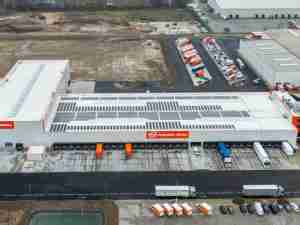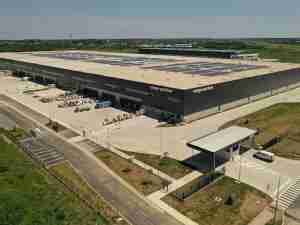Supply chain risk management company Resilience360 today released its first annual Risk Report, which outlines the Top 10 Supply Chain Risks for 2019— a summary of threats that deserve particular attention during 2019 and beyond. In addition to global risks, like international trade tensions and the growing impact of climate change, the Risk Report is designed to provide the intelligence needed to help organizations re-evaluate their specific risk strategies and adapt their networks accordingly.
“The supply chain risk environment is dynamic and continually evolving. At Resilience360, our teams of analysts monitor hundreds of risk events every day, tracking their impact on the supply chains of dozens of industries,” said Tobias Larsson, chief executive officer, Resilience 360. “In our first annual Risk Assessment report, we’ve used that experience to highlight a portfolio of threats that deserve particular attention during 2019 and beyond.”
Below is a quick summary of the Top 10 trends to look out for in 2019, to examine the implications for every supply chain network. For an expanded analysis, please download the full Resilience360 Risk Assessment report at https://www.resilience360.dhl.com/resilienceinsights/resilience360-annual-risk-report-2018/
Trade wars drive manufacturing network restructuring: Global trade tensions have led to the imposition of new import tariffs on a wide range of consumer products and industrial components.
Rising demand and fragile supply create raw material shortages: Supply of some key materials is vulnerable to widespread disruption caused by demand spikes or production bottlenecks.
Recalls and safety scares put quality under scrutiny: In highly regulated sectors such as pharmaceuticals and medical devices, attention to compliance and quality control is likely to rise, driven by wider public awareness of quality issues and stricter enforcement by regulators.
Climate change impact heats up: As it did in 2018, the changing climate is likely to have wide-ranging effects on global supply chains.
Tougher environmental regulations make polluters pay: In moves intended to tackle climate change, local air quality, and other forms of environmental pollution, authorities around the world are introducing new regulations and stepping up enforcement efforts.
Economic uncertainty and structural change put suppliers under threat: The global trade war, uncertainty over Brexit, and stricter environmental regulations could become driving factors in putting financial pressure on lower tier industrial and automotive suppliers, bringing insolvencies to the forefront of supply chain risk management in 2019.
Cargo caught up in industrial unrest: Strikes, overtime bans, or work-to-rule can affect any transport mode, almost anywhere in the world. For shippers, the impact of these events can range from the mildly irritating to the considerably disruptive.
Hazardous transport: container ship fires: Following two large fires on Maersk-operated container vessels in 2018, a number of container ship fires and accidents in the first week of 2019 highlighted again what may become more commonplace occurrences.
Battles at the borders to increase wait times: Public discourse following the migration influx to Western Europe and ongoing high-profile migrant caravans traveling to the United States has increased many countries’ focus on physical border security.
Drones strike a blow to aviation safety: The combined ease of drone accessibility and the lack of public awareness surrounding aviation regulations suggest that airport disruptions related to air traffic safety are likely to become more frequent in 2019, and thus present a greater risk of disruption to aviation logistics operations.
“The modern economy relies on the smooth operation of complex and sophisticated supply chains,” said Shehrina Kamal, director, Risk Intelligence, Resilience360. “The intelligence provided in the annual Risk Assessment report is designed to help evaluate the risk environment for every industry and provide insights needed to evolve strategy, adapt networks and protect bottom lines.”
DHL Resilience360 is a unique supply chain risk management solution built on four sophisticated products: Supply Chain Visualization, Risk Assessment, a near real-time Incident Monitoring solution, and Risk Response with dedicated control towers that can actively respond to incidents and manage business continuity.





_-_28de80_-_d88095865f9f1cbb4ecdd37edf61c63efd603428_lqip.png)

